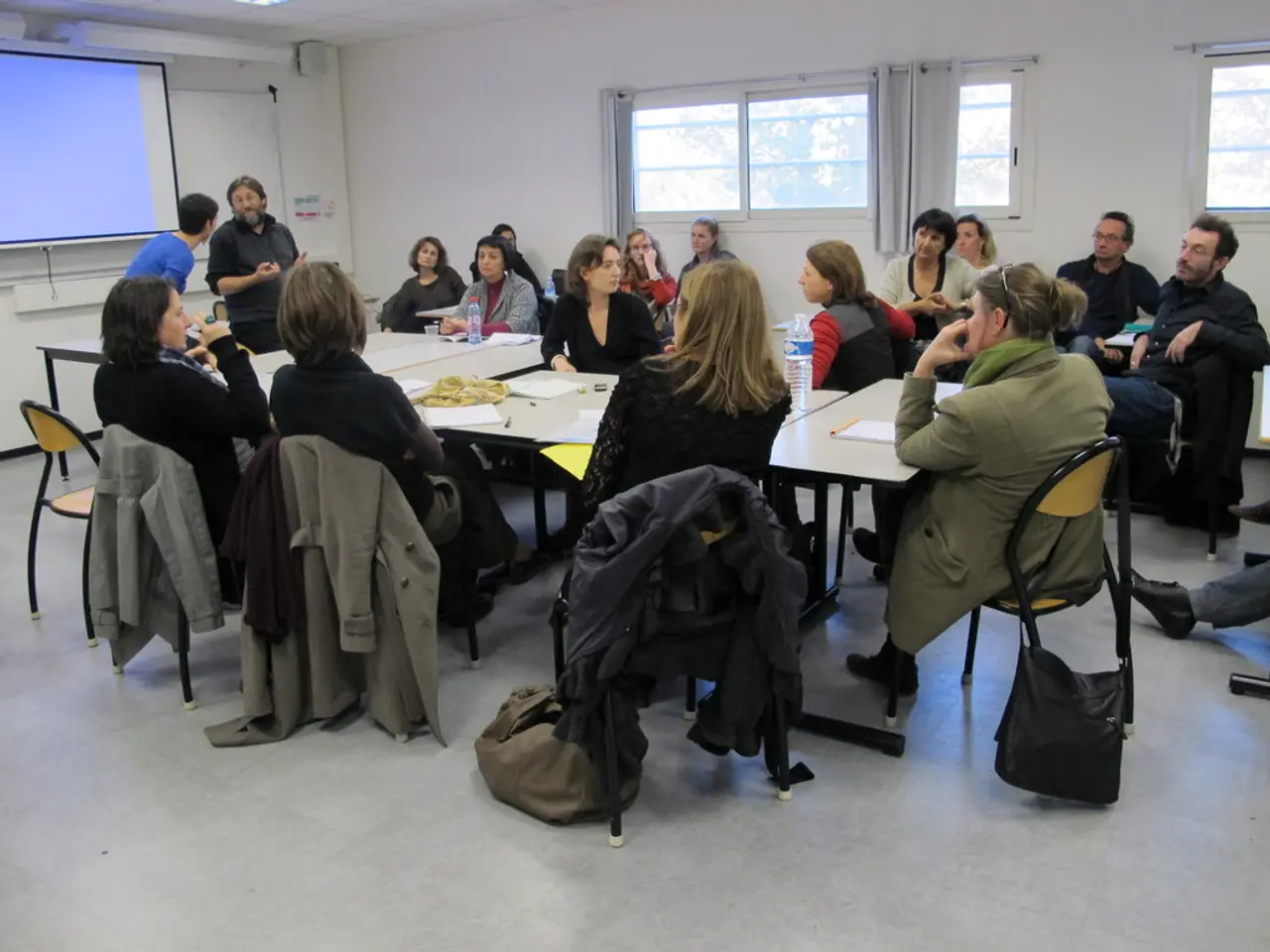In case you suspect everyone in your circle has a larger social network than you, it's likely an incorrect assumption.
A recent study conducted by the University of British Columbia has shed light on a common feeling of inadequacy about social connections among college freshmen. The research found that the perception of having fewer close friends than peers is strongly linked to negative mental health outcomes and difficulties in forming new relationships.
The study, which involved over 1,400 first-year university students, delves into the friendship paradox, a phenomenon first identified by sociologist Scott Feld in 1991. This paradox explains why most people underestimate their social position, as on average, most people have fewer friends than their friends have.
In this study, the participants were found to have an average of 3.63 close friends, while they estimated their peers to have 4.15 friends on average. This perception gap persists even when participants were asked about the "average student" rather than their specific friends, suggesting psychological factors beyond mathematical distribution are at play.
Interestingly, students who believed their classmates had more friends than they did also reported lower overall well-being. This perception of social inadequacy can contribute to increased loneliness, social isolation, and psychological distress, which can undermine both the well-being and social integration of students during an important transitional period.
Mental Health Effects
College students who feel socially isolated or perceive fewer close friendships experience higher levels of anxiety, depression, stress, and psychological distress. During the COVID-19 pandemic, such isolation intensified mental health challenges, with elevated rates of depression (24.2%) and anxiety (34.2%) reported, which were above pre-pandemic levels. Loneliness is strongly associated with poorer mental health outcomes and can exacerbate conditions such as eating disorders, obsessive-compulsive disorder, and post-traumatic stress disorder.
Role of Social Support
Having strong, supportive relationships—whether from close friends, family, or romantic partners—is consistently linked to better mental health and life satisfaction among college students. Social support acts as a buffer to reduce stress and psychological problems, increasing students' resilience in the face of challenges. Conversely, perceiving fewer close social ties deprives students of this protective buffer, making them more vulnerable to mental health difficulties.
Impact on Forming New Relationships
Students who feel they have fewer close friends than their peers often face greater challenges in forming meaningful connections at university. This can lead to emotional loneliness and a sense of not belonging, especially among freshmen adapting to a new environment and academic pressures. The lack of close friendships can perpetuate a cycle where students feel isolated, which inhibits seeking out or successfully establishing new social bonds.
Sense of Belonging and Academic Persistence
Feeling socially connected and supported in academic and campus environments promotes better mental health and can enhance students' academic persistence and engagement. A deficit in close friends adversely impacts this sense of connectedness, further reducing students’ ability to thrive both socially and academically in college.
Addressing Social Anxiety and Friendship Formation
The first-year college environment particularly benefits from addressing issues related to social anxiety and friendship formation directly, as students simultaneously navigate identity development and community building while lacking their established support networks. Educational institutions and workplaces can foster healthier social environments by facilitating transparent discussions about social anxiety and friendship formation, creating structured opportunities for meaningful connection, highlighting the normalcy of social growth over time, and destigmatizing solitary activities within communal spaces.
Social Media and the Friendship Misperception
Social media algorithms promote content featuring social gatherings, celebrations, and group activities over solitary moments, creating a distorted view where people compare their complete social experience against a curated feed showing only others' most socially connected moments. This inflation of friendship metrics further skews our perception when someone casually mentions having "hundreds of friends," as it is unclear whether they are referring to genuine close relationships or digital connections.
Moderate Social Insecurity and Positive Action
Interestingly, the study found that a moderate level of social insecurity can motivate positive action and lead to the formation of more new relationships. Understanding the friendship illusion offers practical benefits for improving social well-being, such as reality-checking perceptions, recognizing the motivation sweet spot, practicing social transparency, redefining friendship quality, embracing solitude strategically, and creating healthier social cultures in educational institutions and workplaces.
In conclusion, addressing the perception of fewer close friends among college freshmen is crucial for improving their mental health, fostering meaningful relationships, and promoting a healthier campus environment. Efforts to strengthen social support systems and foster inclusive campus environments are vital to mitigating these adverse effects.
[1] Hawkley, L. C., Cacioppo, J. T., & Crowley, M. J. (2010). Loneliness: Human nature and the need for social connection. Oxford University Press.
[2] Cacioppo, J. T., & Patrick, W. (2008). Loneliness: human nature and the need for social connection. Wiley.
[3] VanderWeele, T. J., & Whiteside, S. P. (2012). Social isolation and depression: a Mendelian randomization study. The Lancet Psychiatry, 9(9), 735-742.
[4] Cacioppo, J. T., Cacioppo, S., & Gonzaga, G. C. (2004). Loneliness: human nature and the need for social connection. Wiley.
[5] Cacioppo, J. T., Hawkley, L. C., & Thisted, R. A. (2015). Loneliness: a social and evolutionary analysis. Oxford University Press.
- To combat the negative mental health outcomes associated with feeling socially isolated, students should turn to technology and education-and-self-development resources, focusing on understanding and managing social anxiety as part of their personal-growth journey.
- Leveraging science and technology, mental-health applications can provide support for college students struggling with social connections, offering tools for self-assessment, social skill development, and fostering a sense of health-and-wellness.
- Educational institutions and workplaces can harness technology to facilitate a more inclusive and supportive environment, utilizing online platforms for discussion and community building, promoting mental health resources, and fostering the self-development skills needed to form successful friendships and maintain positive mental health.




